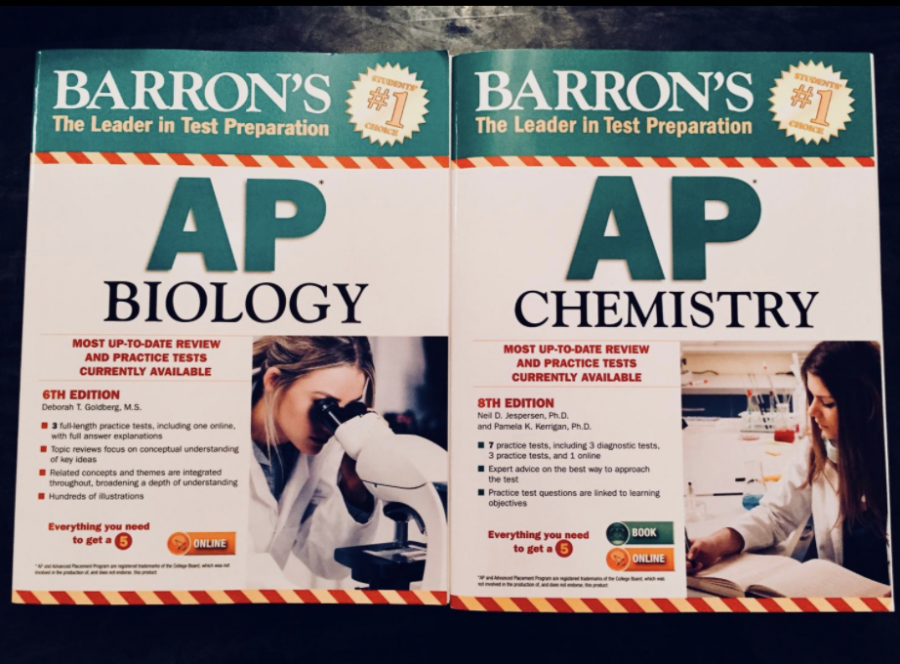AP Chemistry and AP Biology Now a Two-Credit Course for 2021-2022 School Year
Two credit Chemistry/Biology courses could better prepare students for the AP exam.
In early November, the Southern Lehigh school board approved a new Program of Studies for the 2021-2022 school year. This move included updating AP Chemistry and AP Biology from one-credit courses into two-credit courses, a change many educators consider overdue.
“It’s been a long time coming for several years,” AP Chemistry teacher Ms. Rachel Saber said. “[AP Biology teacher] Mr. [Edward] Sinkler has been a very vocal advocate of it for many years, and I jumped on the bandwagon with him on it as well, because there’s just not enough time to cover the content with how the schedule is right now.”
Under the high school’s current AB block schedule, each class meets once every two days; under the new plan, AP Biology and AP Chemistry would meet every day. A central motivator for this change was how content-heavy both courses are. Teachers have been unable to go in-depth on topics, as they need to fit as much content as possible.
“Unfortunately, the way our schedule is right now, I can barely spend 10 minutes reviewing and answering questions before we have to move on,” Ms. Saber said
“The requirement for AP Biology, as far as the College Board is concerned, is that this is supposed to be equivalent to a full-year freshman biology course in college,” Mr. Sinkler said. “So I was attempting to teach two semesters of work in one semester.”
Both teachers heavily emphasized that labs and hands-on learning are an essential part of the science curriculum, something this new course setup would allow them to spend more time on. They expressed a desire to reach beyond the confines of the AP standards in order to foster a natural curiosity of the sciences in their students, rather than simply teaching towards a test.
“I would like to utilize the full two credits, so students will not only learn about the science, but also do it, through a ‘science seminar’ format,” Mr. Sinkler said. “It would allow students to do independent research work in something that interests them, rather than just limiting them to the AP curriculum because of time.”
Overall, students will gain 115 instructional hours, increasing from the current 95 instructional hours to a total of 210. This would match the number of hours offered by Whitehall and Saucon Valley school districts, who have already adopted two-credit courses. In this model, teachers won’t have to rush through material, allowing them to spend double the time on content, ultimately preparing students for the AP Exam in May.
“A two-credit course would make a huge difference in how well the students both understand the material and are prepared for the AP Exam,” Ms. Saber said.
Despite the numerous benefits, the switch also carries valid concerns. Namely, incoming students may be less likely to take these classes when each is equivalent in credits to two courses, or a quarter of their total course load. This potential issue is also potentially compounded by the chance that only one section of each course would be offered, limiting availability.
Nevertheless, many are optimistic that this new change would ultimately benefit both students and teachers.
“I’m hopeful that students will have a real scientific exploration experience,” principal and former biology and chemistry teacher Mrs. Beth Guarriello said of the change. “It’s one thing to talk about it and learn the material, but it’s a whole other thing to apply it. I’m really excited that the kids get to do a lot more labs and see things in action.”


